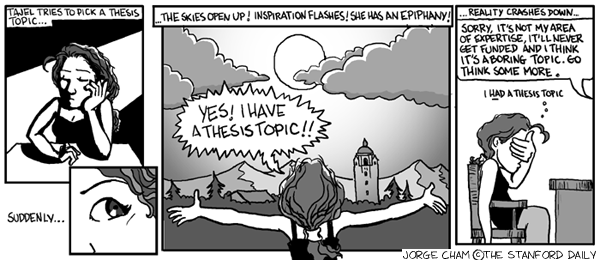Thesis projects
I welcome students that want to do a thesis project with me as internal supervisor. Below you can find a number of tentative master projects that are closely related to the work in my research group and that can be tailored to your own interests. They range from conceptual to formal and from programming to experiments; some projects are suitable for students in Cognitive Neuroscience or Computer Science as well as Artificial Intelligence. Feel free to contact me if you want to brainstorm.
Open master projects
Neuromorphic Algorithm Design (AI or CS project)
Neuromorphic chips, such as Intel's new Loihi chip, are not based on the traditional Von Neumann-architecture but represent both data and algorithm in spiking behavior of spiking neural networks. These new architectures allow for a totally different view on how to process information, e.g., encode data in temporal differences between spikes or in synaptic delays. We have remote access to Intel's Loihi chip to investigate the runtime behavior of such algorithms on this neuromorphic architecture. Keywords: Neuromorphic computing, algorithm design and analysis, complexity. Extensions towards hardware design (e.g. FPGA) possible. Prerequisite course: Neuromorphic Computing.
Neuromorphic Models of Computation (CS or possibly AI project)
In our recent work (Kwisthout and Donselaar, 2020) we have laid some first foundations for a computational complexity framework for neuromorphic architectures. Many open questions remain; for example, it has been claimed in the literature that neuromorphic architectures are Turing-complete; this appears to depend on assumptions with respect to infinite spike delays or access to internal neuron states. In this project we would like to study such claims and in general find out to what extent variations on the formal machine model determinates them. Keywords: theoretical computer science, Neuromorphic computing, computability and complexity. Prerequisite course: Neuromorphic Computing. A background in computability / complexity theory is highly desired.
Solving MAP: Trade-off between elimination and factor computations (AI or CS project)
Computing the maximum a posteriori solution (i.e., the MAP explanation) is a highly intractable problem to solve exactly. Because of the mix of MAX and SUM operations, junction tree algorithms are typically not well suited to solve MAP. Variable elimination is typically too memory-hungry as the order of steps (first summing out all intermediate variables, then maximizing out all MAP variables) can (and often does) lead to huge factors. Other approaches try to do branch-and-bound search and do inference at root nodes of the search tree. In this project we want to explore mixtures and trade-offs of both approaches. Keywords: Bayesian networks, algorithm design, complexity analysis.
Bayesian network models in clinical decision support (AI project)
I work with colleagues from Radboud UMC on several projects where concrete Bayesian models are being constructed and adapted for treatment and follow-up of cancer. Also if you are interested in explanatory aspects, both formally (within the context of Bayesian networks) and conceptually (what is a good justification or explanation) or if you are interested in maintenance and updating of Bayesian networks this might be an interesting topic to explore. Keywords: Bayesian networks, explanation, AI for healthcare.
Complexity of Bayesian inferences (AI or CS project)
I did my PhD research on the computational complexity of various problems in Bayesian networks, such as monotonicity, sensitivity and parameter tuning, and finding the k-th best explanation. In the p-CABI project we study the complexity of approximate inferences, in particular with respect to the predictive processing account. Are you interested in collaboration within this project and/or study (parameterized) complexity of some computational problem in Bayesian networks, this might define an interesting thesis project to you. Keywords: Bayesian networks, approximate inference, (parameterized) computational complexity.
